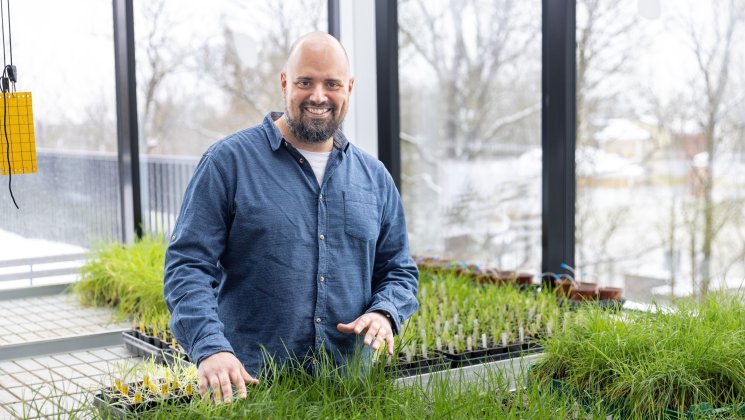University of Tartu museums received the Green Museum certificate for promoting sustainable development
On 15 May, the University of Tartu Museum and the University of Tartu Natural History Museum and Botanical Garden were given the Green Museum certificate. It is awarded to museums that are actively working towards better sustainability.
The Green Museum certificate has been awarded since the end of last year. The development of the system was coordinated by a working group of ICOM Estonia led by Reet Mägi, Head of the Department of Exhibitions and Nature Education at the University of Tartu Natural History Museum and Botanical Garden. According to Mägi, museums have a major role in making society more sustainable.
"Museums have the capacity to engage their visitors and tell the story of environmental change more widely, through exhibitions and educational programmes. The principles of the green museum provided a good opportunity to thoroughly think about our day-to-day operation and pay attention to our environmental impact," Reet Mägi explained.
The Natural History Museum and Botanical Garden contribute to preserving biodiversity and developing nature education. The University of Tartu Museum contributes to creating research-based society through exhibitions and educational activities and preserves the scientific and cultural heritage of the university. Both museums were also among the founders of the University of Tartu Centre for Sustainable Development, and museum representatives participate in the centre's council and expert panel.
Active employees create change
According to Ele Loonde, head of the sustainable development working group at the University of Tartu Museum, organisational change starts with passionate people. Sustainable development activities at the museum are led by a working group set up in October 2022, comprising representatives from all departments, the director of research and the working environment representative.
Since the autumn, the group has, among other things, looked into the energy consumption of museum buildings, trained the staff on how to work in an environmentally friendly way, compiled its principles of sustainable development, guidelines for sustainable museum employees and for creating sustainable exhibitions.
"It is great to see so many enthusiastic people working at the museum who want to improve the environment around us. The whole team and I have learned a great deal: from sorting waste correctly to monitoring and analysing energy costs. I believe that by now, we have also become sustainability advocates outside the workplace, which is the only way to change mindsets and society," added Loonde.
The University of Tartu Museum and the Natural History Museum and Botanical Garden are located in buildings protected under heritage conservation, in which energy efficiency can be difficult to achieve. Both the Tartu Cathedral (UT Museum) and the botanical garden are undergoing renovation work this summer to reduce energy consumption and improve working conditions.
The Green Museum is an environmental management system that helps museums to assess and reduce their environmental impact and operate more sustainably. Implementing the Green Museum principles aims to integrate environmentally responsible practices into all aspects of the museum's activities: management of the museum building and collections, environmental management, staff and stakeholder involvement, organisation of exhibitions, events, museum education and social responsibility issues.
The Green Museum system has been developed by the Stockholm Environment Institute Tallinn (SEI Tallinn) together with the Estonian National Committee of the International Council of Museums (ICOM). The Estonian Association for Environmental Management manages the Green Museum system and issues certificates. Along with the university's museums, also the Estonian National Museum received the certificate. The Kumu Art Museum was the first to receive the certificate in 2022.





